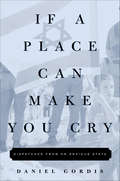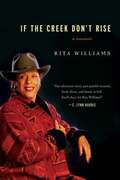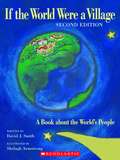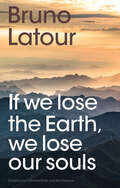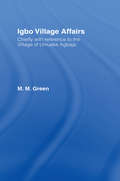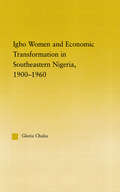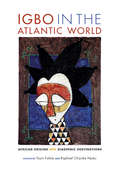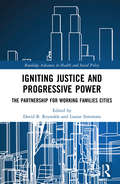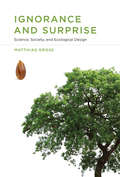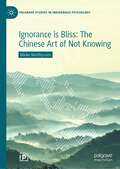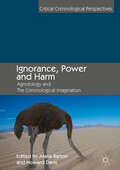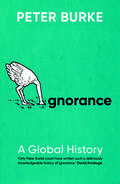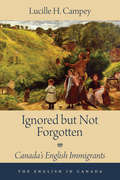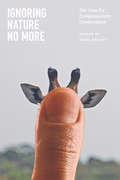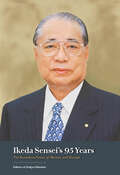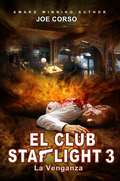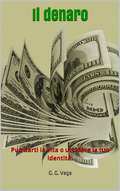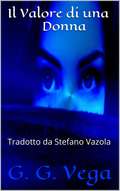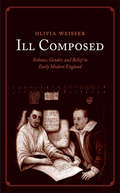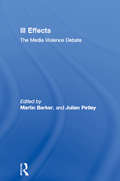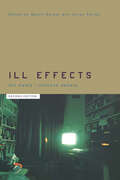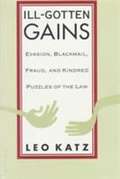- Table View
- List View
If a Place Can Make You Cry
by Daniel GordisIn the summer of 1998, Daniel Gordis and his family moved to Israel from Los Angeles. They planned to be there for a year, during which time Daniel would be a Fellow at the Mandel Institute in Jerusalem. This was a euphoric time in Israel. The economy was booming, and peace seemed virtually guaranteed. A few months into their stay, Gordis and his wife decided to remain in Israel permanently, confident that their children would be among the first generation of Israelis to grow up in peace.Immediately after arriving in Israel, Daniel had started sending out e-mails about his and his family's life to friends and family abroad. These missives--passionate, thoughtful, beautifully written, and informative--began reaching a much broader readership than he'd ever envisioned, eventually being excerpted in The New York Times Magazine to much acclaim. An edited and finely crafted collection of his original e-mails, If a Place Can Make You Cry is a first-person, immediate account of Israel's post-Oslo meltdown that cuts through the rhetoric and stridency of most dispatches from that country or from the international media. Above all, Gordis tells the story of a family that must cope with the sudden realization that they took their children from a serene and secure neighborhood in Los Angeles to an Israel not at peace but mired in war. This is the chronicle of a loss of innocence--the innocence of Daniel and his wife, and of their children. Ultimately, through Gordis's eyes, Israel, with all its beauty, madness, violence, and history, comes to life in a way we've never quite seen before.Daniel Gordis captures as no one has the years leading up to what every Israeli dreaded: on April 1, 2002, Prime Minister Ariel Sharon declared that Israel was at war. After an almost endless cycle of suicide bombings and harsh retaliation, any remaining chance for peace had seemingly died.If a Place Can Make You Cry is the story of a time in which peace gave way to war, when childhood innocence evaporated in the heat of hatred, when it became difficult even to hope. Like countless other Israeli parents, Gordis and his wife struggled to make their children's lives manageable and meaningful, despite it all. This is a book about what their children gained, what they lost, and how, in the midst of everything, a whole family learned time and again what really matters.From the Hardcover edition.
If the Creek Don't Rise: My Life Out West with the Last Black Widow of the Civil War
by Rita WilliamsWhen Rita Williams was four, her mother died. This death delivered Rita into the care of her aunt Daisy, a headstrong woman who had married the most prominent black landowner in Nebraska and spirited her sharecropping family out of the lynching South.
If the World Were a Village
by David J. Smith.This is the new paperback edition of a beautiful and unique book, which explains facts about the world's population in a simple and fascinating way. Instead of unimaginable billions, it presents the whole world as a village of just 100 people. We soon find out that 22 speak a Chinese dialect and that 17 cannot read or write. We also discover the people's religions, their education, their standard of living, and much much more...This book provokes thought and elicits questions. It cannot fail to inspire children's interest in world geography, citizenship and different customs and cultures, whether they read it at home or at school.
If the World Were a Village (2nd Edition)
by David J. Smith Shelagh AmrstrongThe 2nd Edition of the best-selling book which has sold over 400 000 copies in 17 languages - updated with new content and insights about the world's people. First published to wide acclaim in 2002, this eye-opening book has since become a classic, promoting world-mindedness by imagining the world's population - all 6.8 billion of us - as a village of just 100 people. Now, If the World Were a Village has been newly revised with updated statistics, several new activities and completely new material on food security, energy and health. By exploring the lives of the 100 villagers, children will discover that life in other nations is often very different from their own. If the World Were a Village is part of CitizenKid: A collection of books that inform children about the world and inspire them to be better global citizens.
If we lose the Earth, we lose our souls
by Bruno LatourIn this book Bruno Latour calls upon Christians to join the struggle to avert a climate catastrophe. First and foremost, Christians need to overcome their lack of interest in “earthly things” and pay attention to the Earth at a time when it is being neglected. He also urges Christians to renew their understanding of their faith in the context of the new image of the world that has emerged from earth system science – that of a world in which the myriad of beings that inhabit the world are interdependent and living in close proximity on a slender, fragile membrane on the surface of the planet. This new image of the world cannot fail to have an impact on the sciences, on politics, and on religion, just as, in earlier centuries, the cosmology of Copernicus and Galileo upset the old order. Latour sees the ecological crisis, and the cosmological mutation that it entails, as an opportunity to convey anew, to the largest possible audience, the tradition of Christianity as it has never been appreciated before, by bringing to bear the lessons of eschatology on the great crisis that looms before us all.
Igbo Village Affairs: Chiefly with Reference to the Village of Umbueke Agbaja (1947)
by Margaret M. GreenFirst published in 1964
Igbo Women and Economic Transformation in Southeastern Nigeria, 1900-1960 (African Studies)
by Gloria ChukuThis study analyzes the complexity and flexibility of gender relations in Igbo society, with emphasis on such major cultural zones as the Anioma, the Ngwa, the Onitsha, the Nsukka, and the Aro.
Igbo in the Atlantic World: African Origins and Diasporic Destinations
by Toyin Falola Raphael Chijioke NjokuThe Igbo are one of the most populous ethnic groups in Nigeria and are perhaps best known and celebrated in the work of Chinua Achebe. In this landmark collection on Igbo society and arts, Toyin Falola and Raphael Chijioke Njoku have compiled a detailed and innovative examination of the Igbo experience in Africa and in the diaspora. Focusing on institutions and cultural practices, the volume covers the enslavement, middle passage, and American experience of the Igbo as well as their return to Africa and aspects of Igbo language, society, and cultural arts. By employing a variety of disciplinary perspectives, this volume presents a comprehensive view of how the Igbo were integrated into the Atlantic world through the slave trade and slavery, the transformations of Igbo identities and culture, and the strategies for resistance employed by the Igbo in the New World. Moving beyond descriptions of generic African experiences, this collection includes 21 essays by prominent scholars throughout the world.
Ignatius Sancho and the British Abolitionist Movement, 1729-1786: Manhood, Race and Sensibility
by G. J. Barker-BenfieldThis book highlights the significant role played by Ignatius Sancho (c. 1729-80), the first black man to vote in England, in the British abolitionist movement. Examining the letters of Sancho, and especially his correspondence with the influential novelist and preacher, Laurence Sterne, the author analyses the relationship between sensibility and antislavery in eighteenth-century Britain. The book demonstrates how Sancho navigated the bawdy, riotous conditions of commercial London, which was the headquarters of a growing and war-torn Empire. It shows how Sancho mastered the fashionable and gendered language of the culture of sensibility, navigating the contemporary issues of race, slavery, and politics. The book also touches on the White metropolitan and colonial preoccupation with Black men’s sexuality, which was intensified by the Somerset decision of 1772. Sancho’s was a unique and influential voice in eighteenth-century Britain, making this book an insightful read for scholars of anti-slavery as well as gender, race and imperialism in British history.
Igniting Justice and Progressive Power: The Partnership for Working Families Cities
by David B. Reynolds and Louise SimmonsA progressive resurgence is happening across the United States. This book shows how long-lasting coalitions have built progressive power from the regional level on up. Anchored by the "think and act" affiliate organizations of the Partnership for Working Families (PWF) these regional power building projects are putting in place the vision, policy agenda, political savvy, and grassroots mobilization needed for progressive governance. Through six sections, the book explores how Partnership for Working Families projects are a core part of the defeat of the right-wing in states such as California; the challenge to corporate neoliberalism in traditionally "liberal" areas; and contests for power in such formally solid red states as Arizona, Georgia, and Colorado. This book considers how these PWF groups work on economic, racial and environmental justice challenges, equitable development, and other critical issues. It addresses how, at their core, they bring together labor, community, environmental, and faith-based organizations and the coalitions and campaigns that they developed have won and continue to win substantial victories for their communities. Igniting Justice and Progressive Power will be of interest to activists and concerned citizens looking to understand how lasting political change actually happens as well as all scholars and students of social work, urban geography, political sociology, community development, social movements and political science more broadly.
Ignorance and Surprise: Science, Society, and Ecological Design (Inside Technology)
by Matthias GrossThe relationship between ignorance and surprise and a conceptual framework for dealing with the unexpected, as seen in ecological design projects.Ignorance and surprise belong together: surprises can make people aware of their own ignorance. And yet, perhaps paradoxically, a surprising event in scientific research—one that defies prediction or risk assessment—is often a window to new and unexpected knowledge. In this book, Matthias Gross examines the relationship between ignorance and surprise, proposing a conceptual framework for handling the unexpected and offering case studies of ecological design that demonstrate the advantages of allowing for surprises and including ignorance in the design and negotiation processes.Gross draws on classical and contemporary sociological accounts of ignorance and surprise in science and ecology and integrates these with the idea of experiment in society. He develops a notion of how unexpected occurrences can be incorporated into a model of scientific and technological development that includes the experimental handling of surprises. Gross discusses different projects in ecological design, including Chicago's restoration of the shoreline of Lake Michigan and Germany's revitalization of brownfields near Leipzig. These cases show how ignorance and surprise can successfully play out in ecological design projects, and how the acknowledgment of the unknown can become a part of decision making. The appropriation of surprises can lead to robust design strategies. Ecological design, Gross argues, is neither a linear process of master planning nor a process of trial and error but a carefully coordinated process of dealing with unexpected turns by means of experimental practice.
Ignorance is Bliss: The Chinese Art of Not Knowing (Palgrave Studies in Indigenous Psychology)
by Mieke MatthyssenThis book examines the popular, yet puzzling, Chinese saying Nande hutu 难得糊涂 to uncover how the ancient Chinese wisdom of not knowing is constructed, interpreted, practiced and valued in contemporary society.Originating in the calligraphy of Qing-dynasty scholar Zheng Banqiao, Nande hutu translates literally as: “hard to attain muddle-headedness”. Mieke Matthyssen traces the historical development of this saying and related philosophies to reveal a culturally conditioned, multi-layered inclination to different forms of not knowing. In contemporary society, she argues, this inclination forms part of a living art: in some respects, a passive, evasive strategy for self-preservation; in other respects, a strategy for coping with intrapersonal, interpersonal and social complexities. Drawing on an extensive range of primary sources and original research, the analysis skillfully combines philosophical and socio-historical analysis with theory from Chinese philosophy, philosophical psychology and the relatively new field of indigenous psychology, to provide an in-depth understanding of how Nande hutu has shaped, and continues to shape, the Chinese psyche and behaviour. This book will appeal to all readers looking for fresh insights into Chinese culture, and in particular to students and scholars of Chinese and Asian studies, cultural and social anthropology, and philosophical and indigenous psychology.
Ignorance, Power and Harm: The Study Of Agnotology And The Criminological Imagination (Critical Criminological Perspectives)
by Howard Davis Alana BartonThis book discusses the concept of 'agnosis' and its significance for criminology through a series of case studies, contributing to the expansion of the criminological imagination. Agnotology – the study of the cultural production of ignorance, has primarily been proposed as an analytical tool in the fields of science and medicine. However, this book argues that it has significant resonance for criminology and the social sciences given that ignorance is a crucial means through which public acceptance of serious and sometimes mass harms is achieved. The editors argue that this phenomenon requires a systematic inquiry into ignorance as an area of criminological study in its own right. Through case studies on topics such as migrant detention, historical institutionalised child abuse, imprisonment, environmental harm and financial collapse, this book examines the construction of ignorance, and the power dynamics that facilitate and shape that construction in a range of different contexts. Furthermore, this book addresses the relationship between ignorance and the achievement of ‘manufactured consent’ to political and cultural hegemony, acquiescence in its harmful consequences and the deflection of responsibility for them.
Ignorance: A Global History
by Peter BurkeA rich, wide-ranging history of ignorance in all its forms, from antiquity to the present day A Seminary Coop Notable Book of 2023 “Ignorance: A Global History explores the myriad ways in which ‘not-knowing’ affects our lives, sometimes for good, sometimes for ill.”—Michael Dirda, Washington Post Throughout history, every age has thought of itself as more knowledgeable than the last. Renaissance humanists viewed the Middle Ages as an era of darkness, Enlightenment thinkers tried to sweep superstition away with reason, the modern welfare state sought to slay the “giant” of ignorance, and in today’s hyperconnected world seemingly limitless information is available on demand. But what about the knowledge lost over the centuries? Are we really any less ignorant than our ancestors? In this highly original account, Peter Burke examines the long history of humanity’s ignorance across religion and science, war and politics, business and catastrophes. Burke reveals remarkable stories of the many forms of ignorance—genuine or feigned, conscious and unconscious—from the willful politicians who redrew Europe’s borders in 1919 to the politics of whistleblowing and climate change denial. The result is a lively exploration of human knowledge across the ages, and the importance of recognizing its limits.
Ignored but Not Forgotten: Canada's English Immigrants
by Lucille H. CampeyThe story of early English Canadian immigration to Canada is finally told in detail. Ignored but Not Forgotten is a compelling and moving account of one of Canada’s foremost immigrant groups: the story of the great migration of English people to Canada that peaked during the early twentieth century. Based on wide-ranging documentary and statistical sources from both countries, it sets out the various events that propelled this immigration saga, which begins in the seventeenth century with the influx of English people to Atlantic Canada, moves on a century later to Ontario and Quebec, and continues into the late nineteenth century with the arrival of the English in the golden West. The great stream of English people who came to the Prairies and British Columbia in search of land and job opportunities represents one of the most iconic periods of Canada’s pioneering history. Widely ignored in the past as an immigrant group, the English are now being given the attention they deserve. The author reveals their outstanding contribution to Canada’s settlement and subsequent development and challenges the assumption that English Canadians were a privileged elite. In fact, most came from humble backgrounds. This is essential reading for genealogists and general readers wishing to appreciate why the English immigrated to Canada and the enormity of their achievements.
Ignoring Nature No More: The Case for Compassionate Conservation
by Marc BekoffFor far too long humans have been ignoring nature. As the most dominant, overproducing, overconsuming, big-brained, big-footed, arrogant, and invasive species ever known, we are wrecking the planet at an unprecedented rate. And while science is important to our understanding of the impact we have on our environment, it alone does not hold the answers to the current crisis, nor does it get people to act. In Ignoring Nature No More, Marc Bekoff and a host of renowned contributors argue that we need a new mind-set about nature, one that centers on empathy, compassion, and being proactive. This collection of diverse essays is the first book devoted to compassionate conservation, a growing global movement that translates discussions and concerns about the well-being of individuals, species, populations, and ecosystems into action. Written by leading scholars in a host of disciplines, including biology, psychology, sociology, social work, economics, political science, and philosophy, as well as by locals doing fieldwork in their own countries, the essays combine the most creative aspects of the current science of animal conservation with analyses of important psychological and sociocultural issues that encourage or vex stewardship. The contributors tackle topics including the costs and benefits of conservation, behavioral biology, media coverage of animal welfare, conservation psychology, and scales of conservation from the local to the global. Taken together, the essays make a strong case for why we must replace our habits of domination and exploitation with compassionate conservation if we are to make the world a better place for nonhuman and human animals alike.
Ikeda Sensei's 95 Years: The Boundless Power of Mentor and Disciple
by Daisaku IkedaBy taking on Josei Toda' s vision as his own, Daisaku Ikeda Sensei tapped into his limitless potential. In Ikeda Sensei' s 95 Years, you' ll learn of his contributions to creating a harmonious world, fostering friendship among nations, spreading Nichiren Buddhism around the globe, and encouraging young people to stand up to fulll their unique missions. But even more important, you' ll be inspired to discover your own power to make a difference.
Il Club Starlight
by Joe CorsoIl Club Starlight - Un mondo pieno di star del cinema, signori e assassini... "...Appoggiò con cura le gambe del ragazzino sul bordo del marciapiede, risalì in macchina, ingranò la marcia e lentamente avanzò fino a quando l'auto sobbalzò una volta, poi una seconda volta.Trenchie poteva sentire lo scricchiolio delle ossa contro la gomma, le giunture che si separavano, i tendini che si allungavano e si spezzavano, le gambe trasformarsi in poltiglia..." Benvenuti nel mondo della mafia, un mondo in cui gli assassini dal cuore freddo trattano l'omicidio come se fosse "solo un affare" ma allo stesso tempo le donne vengono trattate come donne. Incontra Trenchie, che è appena stato rilasciato dalla sua pena detentiva di dieci anni per omicidio colposo.Una nuova vita ti sta aspettando - completa di buste di denaro e una steak house per chiamare la sua. Tutto E il sicario "Jimmy il Cappello", che trova inaspettata fama nei luoghi più improbabili, eppure rimane sempre fedele a "i ragazzi", in particolare Big Red. "Crazy Joey Gallo" e i suoi fratelli si staccano dalla famiglia Profaci e vanno in giro da soli adesso. Ricorda: non scherzare con "i ragazzi".Potrebbe essere pericoloso per la salute."Il proiettile calibro Colt 45 ha fatto la sua azione, portando con sé una porzione considerevole del cervello, formando una nebbia rosa, mescolata con ossa e materia grigia."È reale.È vero.Dovrei saperlo.
Il denaro
by Guido Galeano Vega Stefano VazzolaIn questo libro voglio condividere il mio punto di vista sul denaro. Vi sono molti punti di vista, in special modo una cattiva interpretazione biblica da parte di molte persone che demonizzano il denaro. Leggendo questo libro capirai perché nella Bibbia ci sono avvertimenti sul pericolo sociale rappresentato dal denaro. Il mondo e la vita di ciascun individuo gravitano necessariamente attorno al denaro; da qui l'importanza di capirlo un po' meglio e di dargli il giusto valore, in modo che, usando il senso comune e l'intelligenza del denaro, diventi uno strumento positivo nella vita delle persone e in tutta la società umana.
Il valore di una donna
by Guido Galeano Vega Stefano VazzolaPurtroppo la storia dell'umanità post diluvio (Genesi 6 e 7) ci rivela che le donne hanno sofferto molto, soprattutto a causa dell'abuso da parte degli uomini, della mancanza di rispetto e della mancanza di valorizzazione dell'identità della donna. Hanno patito ridicole limitazioni sociali, intellettuali e lavorative, scorrettezze di ogni tipo, disprezzo, discriminazione ed emarginazione. A un certo punto gli uomini commisero l'ingiustizia di chiamarle sesso debole, di solito con un'accezione di disprezzo, di inutilità o di molestia. La cosa ironica è che ogni uomo, dopo Adamo, esiste grazie a una donna. Senza il ventre della donna non potrebbero venire partoriti; senza i seni della donna non resisterebbero una settimana, e senza la protezione, l'aiuto e la cura e l'educazione delle rispettive madri non diventerebbero uomini utili, non potrebbero diventare forti né sentirsi in grado di gestire la loro indipendenza. Quest'opera mira a porre le donne sul piedistallo che meritano. Noi uomini non siamo migliori, abbiamo solo altri ruoli nella vita.
Ill Composed
by Olivia WeisserIn the first in-depth study of how gender determined perceptions and experiences of illness in seventeenth- and eighteenth-century England, Olivia Weisser invites readers into the lives and imaginations of ordinary men and women. Drawing on a wide range of sources, including personal diaries, medical texts, and devotional literature, the author enters the sickrooms of a diverse sampling of early modern Britons. The resulting stories of sickness reveal how men and women of the era viewed and managed their health both similarly and differently, as well as the ways prevailing religious practices, medical knowledge, writing conventions, and everyday life created and supported those varying perceptions. A unique cultural history of illness, Weisser's groundbreaking study bridges the fields of patient history and gender history. Based on the detailed examination of over fifty firsthand accounts, this fascinating volume offers unprecedented insight into what it was like to live, suffer, and inhabit a body more than three centuries ago.
Ill Effects: The Media Violence Debate (Communication and Society)
by Julian Petley Martin BarkerIll Effects is a radical re-examination of the whole 'media effects' debate. It questions not only whether the media is capable of directly influencing people's views and actions, but also whether the idea of 'effects' is the most useful way of conceptualising the relationship between the media and audiences. Ill Effects looks at the reasons why the media are routinely blamed for horrific events such as the murders of James Bulger and Suzanne Capper and the Hungerford massacre, as well as for perceived trends such as the alleged 'death of the family' and the rise of 'yob culture'. The authors' concern goes beyond individual cases: they discuss the development and current state of play of research into media effects, the remarkable power of 'common-sense' notions of media effects and the way in which the effects issue has become embroiled in debates about freedom of expression and censorship. They suggest how audiences really respond to media texts, and argue that there is an urgent need for informed and interdisciplinary approaches to the study of the media. Martin Barker, University of the West of England, UK Julian Petley, Brunel University,UK Pat Holland, David Buckingham, The Anneberg School for Communication,UK David Mi
Ill Effects: The Media Violence Debate (Communication and Society)
by Julian Petley Martin BarkerThe influence of the media remains a contentious issue. Every time a particularly high-profile crime of violence is committed, there are those who blame the effects of the media. The familiar culprits of cinema, television, video and rock music, have now been joined, particularly in the wake of the massacre at Columbine High, by the Internet and the World Wide Web. Yet, any real evidence that the media do actually have such negative effects remains as elusive as ever and, consequently, the debate about effects frequently ends up as being little more than strident and rhetorical appeals to 'common sense'. Ill Effects argues that the question of media influence needs to be debated by those with a clearer understanding of how audiences and media interact with one another. Analysing the failure of the effects approach to understand both the modern media and their audiences, this second edition examines the influence of the effects tradition in America, the United Kingdom, Australia and Europe as well as the role of the British Board of Film Classification. Contributors examine the increasing number of stories about the alleged ill effects of the Internet and enquire whether this is a prelude to, and a crude attempt to legitimise, the imposition of tighter controls on new media. Ill Effects is a guide for the perplexed. It suggests new and productive ways in which we can understand the effects of the media and questions why many in media education accept a simple interpretation of the effects debate, particularly at times of moral panic. Refusing to adopt the absurd position that the media have no influence at all, Ill Effects reconceptualises the notion of media influence in ways which take into account how people actually use and interact with the media in their everyday lives. Martin Barker, Sara Bragg, David Buckingham, Tom Craig, David Gauntlett, Patricia Holland, Annette Hill, Mark Kermode, Graham Murdoch, Julian Petley, Sue Turnbull.
Ill-Equipped
by Human Rights Watch StaffMentally ill offenders face mistreatment and neglect in many U.S. prisons. One in six U.S. prisoners is mentally ill. Many of them suffer from serious illnesses such as schizophrenia, bipolar disorder, and major depression. There are three times as many men and women with mental illness in U.S. prisons as in mental health hospitals. The rate of mental illness in the prison population is three times higher than in the general population. This 215-page report examines how prisons are dangerous and damaging places for mentally ill people. Other prisoners victimize and exploit them. Prison staff often punish mentally ill offenders for symptoms of their illness - such as being noisy or refusing orders, or even self-mutilation and attempted suicide. Mentally ill prisoners are more likely than others to end up housed in especially harsh conditions, such as isolation, that can push them over the edge into acute psychosis. Woefully deficient mental health services in many prisons leave prisoners undertreated - or not treated at all. Across the country, prisoners cannot get appropriate care because of a shortage of qualified staff, lack of facilities, and prison rules that interfere with treatment. The report is based on more than two years of research and hundreds of interviews with prisoners, corrections officials, mental health experts and attorneys and makes recommendations on services and regulations that would assist and protect mentally ill prisoners.
Ill-Gotten Gains: Evasion, Blackmail, Fraud, and Kindred Puzzles of the Law
by Leo KatzLeo Katz describes the underlying principles that not only guide the law but also moral decisions. Mixing wit with insight, anecdotes with analysis, Katz uncovers what is really at stake in crimes such as insider trading, blackmail, and plagiarism.
